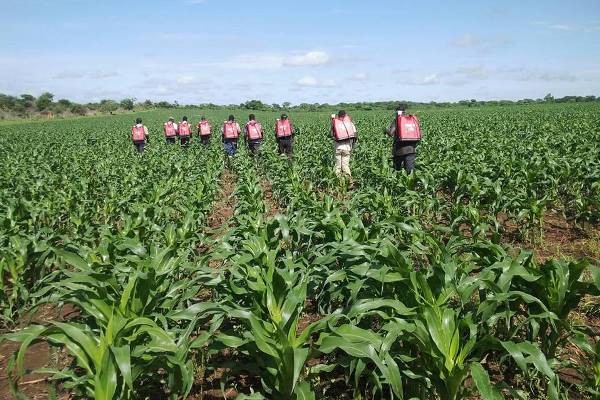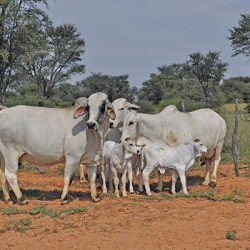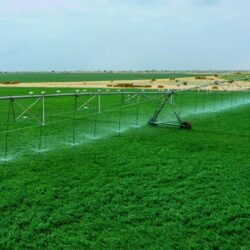In a significant development for the South African agricultural sector, the country has recently imported white maize for the first time since 2017. This move, necessitated by a severe drought that significantly impacted maize yields last year, underscores the growing vulnerability of the region to climate change and the increasing pressure on domestic supplies.
The drought, which affected much of Southern Africa, led to a dramatic decline in South Africa’s maize production, with white maize output plummeting by over 29% to six million tons. This shortfall, coupled with a surge in exports to neighbouring countries like Zimbabwe, has created a tight supply situation in the domestic market.
“South Africa’s white maize stocks are projected to close at just 277,884 tons by April 30th, a sharp decline from the 1.3 million tons recorded in the previous marketing year,” says Wandile Sihlobo, chief economist at Agbiz. This dwindling supply has pushed white maize spot prices to record highs, reflecting a 55% increase compared to the previous year.
The impact of the drought extends beyond South Africa’s borders. Neighbouring countries, including Zambia and Zimbabwe, also experienced severe crop losses, further straining regional maize supplies. “South Africa’s maize exports have also been affected,” says Sihlobo. “The country exported about 1.6 million tons of maize by early January 2024, a significant decline from the 3.4 million tons exported in the previous marketing year.”
While the current imports are not expected to significantly disrupt the local market, they serve as a stark reminder of the growing vulnerability of the region to climate change. “This is a significant development,” says Heleen Viljoen, agricultural economist at Grain SA. “It highlights the increasing pressure on South Africa’s maize production and the need for proactive measures to ensure food security.”
A Global Perspective
The challenges facing South Africa’s maize sector are not isolated. “Climate change is increasingly impacting agricultural production globally,” says Joseph Glauber, a Senior Research Fellow with IFPRI’s Markets, Trade, and Institutions Unit. “Extreme weather events, such as droughts and floods, are becoming more frequent and intense, disrupting production cycles and impacting food security.”
Weston Anderson, an agroclimatologist at the University of Maryland and NASA, emphasizes the need for adaptation strategies. “Investing in drought-resistant crop varieties, improving irrigation infrastructure, and implementing sustainable farming practices are crucial for mitigating the impacts of climate change on agriculture,” he says.
Looking Ahead
Despite the current challenges, South Africa remains a significant player in the global maize market. The country’s ability to combine its current harvest with carry-over stocks has prevented a more severe shortage. However, the need for continued vigilance and proactive adaptation measures is paramount.
As South Africa navigates these challenges, it must prioritize investments in agricultural research and development, strengthen its early warning systems, and enhance its capacity to respond to future shocks. The recent maize imports serve as a stark reminder of the interconnectedness of global food systems and the importance of building resilient and sustainable agricultural practices in the face of climate change.




